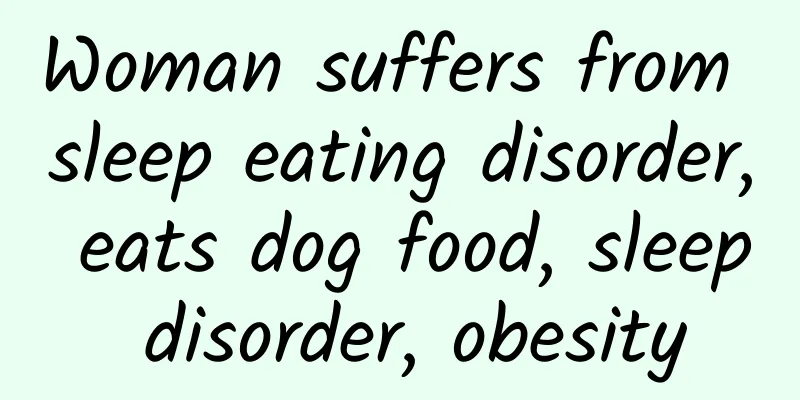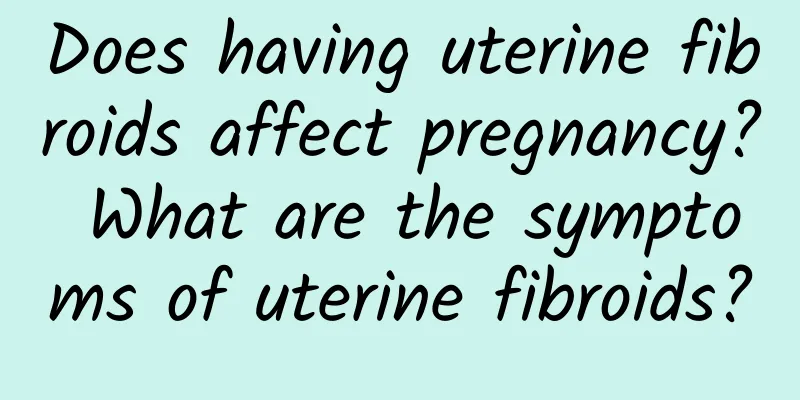Woman suffers from sleep eating disorder, eats dog food, sleep disorder, obesity

|
Does sleep affect weight? Studies have found that not getting enough sleep or not getting enough sleep can lead to weight gain. The Weight Management Center of Taipei Medical University Hospital recently admitted a 39-year-old woman suffering from "sleep eating syndrome". The patient often goes to the kitchen to eat high-sugar or high-starch foods during sleep, especially foods such as ice cream and cookies. She may even eat uncooked noodles or dog food. When the symptoms are more serious, she may binge eat up to 5 times a night, causing her weight to soar by 5 kilograms in a month. Fortunately, she received timely medical treatment and her condition improved. People with sleep apnea will over-secrete ghrelin, which increases the feeling of hunger. Liu Cairui, attending physician at the Weight Management Center of Taipei Medical University Hospital, pointed out that in the past, the public's view on weight loss was largely inseparable from reducing calorie intake (eating less) and increasing calorie expenditure (exercise more), but few people knew that sleep is also related to weight. In particular, you need to sleep well and get enough sleep. Lack of sleep is also an invisible stumbling block to weight loss. Sleep affects body weight and endocrine disorders According to research from Harvard Medical School in the United States, abnormal sleep can lead to multiple endocrine disorders, causing the body's energy balance to lose balance. For example, people with sleep apnea will over-secrete ghrelin, which increases the feeling of hunger and makes it difficult to control food intake. At the same time, the brain is less sensitive to leptin. Clinically, leptin is not only a hormone that makes people feel "full", it also has the function of reducing lipid synthesis and lowering triglycerides. To make matters worse, most obese patients are resistant to the physiological effects of leptin due to obesity, which makes it easier for fat to form, making it difficult to feel full and reduce appetite. Coupled with sleep disorders, weight control is even more difficult. Most people with sleep eating disorder are women, while most people who engage in violent behavior during sleep are men. Parasomnia is a sleep disorder with abnormal behavior and non-psychological factors Dr. Liu Cairui emphasized that according to foreign literature, about 4% of adults have parasomnias. In addition to the more well-known sleepwalking, the symptoms may also include: violent behavior, sexual behavior, or driving a vehicle and other behaviors that are only performed when awake. Among them, 1% will also have symptoms of eating while sleeping. From clinical observations, most patients with sleep eating disorder are women, while most people who engage in violent behavior during sleep are men. Although these behaviors may seem frightening or even dangerous, they are not necessarily a sign of psychological instability. The 39-year-old woman suffered from sleep-eating disorder mainly due to abnormal brain secretions, which is a rare case in China. Physiological stress increases ghrelin and makes you more likely to become obese In fact, lack of sleep is a kind of physiological stress for the body. When the body copes with stress, the adrenal cortisol will rise to increase blood sugar levels. If these sugars are not consumed in a short time, the body will store these excess energy in the form of fat. In addition, when you don’t get enough sleep, the secretion of ghrelin increases and the secretion of leptin decreases, and your appetite cannot be effectively controlled, which leads to obesity. In particular, there are many factors that affect sleep quality, the more common ones are: sleep apnea, periodic limb movements, and narcolepsy; and the factors that cause insufficient sleep are also diverse, such as abnormal lifestyle, chronic insomnia, restless legs syndrome, abnormal sleep cycles, medical, neurological or mental diseases, etc. These problems cannot be solved by taking sleeping pills to prolong sleep time. Taking medicine casually may make the symptoms worse. It is best to seek detailed evaluation from a sleep specialist before taking the right medicine. 【Doctor's reminder】: Sleep and obesity are closely related. Obesity affects sleep, and sleep affects weight. People are reminded that when trying to lose weight, they must not ignore potential sleep disorders, because high-quality sleep will make weight loss plan A more effective! |
<<: Don’t gain weight during the Chinese New Year! 7 Tips for Smart Eating
>>: Metabolism UP! 8 foods that make you lose weight fast
Recommend
Doctors do not recommend strenuous exercise after abortion. Doing these 4 exercises after abortion is good for your health.
After an abortion, because the uterus will be dam...
What are the symptoms of dysmenorrhea usually like?
Dysmenorrhea is a very common physiological pheno...
Symptoms of pelvic inflammatory disease in women
Pelvic inflammatory disease is a common gynecolog...
The MDD diet prevents dementia and makes the brain more than 7 years younger
Using diet to delay dementia, including the Medit...
What are the typical symptoms of uterine fibroids?
It is very important for women to maintain good h...
What is cervical precancerous lesions?
The cause of cervical precancerous lesions is sti...
Who are the most susceptible groups to missed abortion? These groups must strengthen care
People who are prone to missed abortion mainly in...
What medicine should elderly people take for uterine fibroids? What is the best way to treat uterine fibroids in the elderly?
What medicine should elderly people take for uter...
Does adenomyosis cause back pain in patients?
Can adenomyosis cause low back pain? 1. Simply pu...
Four common symptoms of irregular menstruation
As the pressure of social competition increases, ...
Introduction: Several precautions for vulvar leukoplakia
Vulvar leukoplakia is very harmful to female frie...
What are the symptoms of abnormal menstruation
What are the symptoms of abnormal menstruation? S...
What is the cause of ovulation bleeding during puberty?
Ovulation bleeding during adolescence is usually ...
What harm will long-term irregular menstruation bring?
Irregular menstruation is troubling more and more...
What is adnexitis?
What is adnexitis? Women are more likely to suffe...









